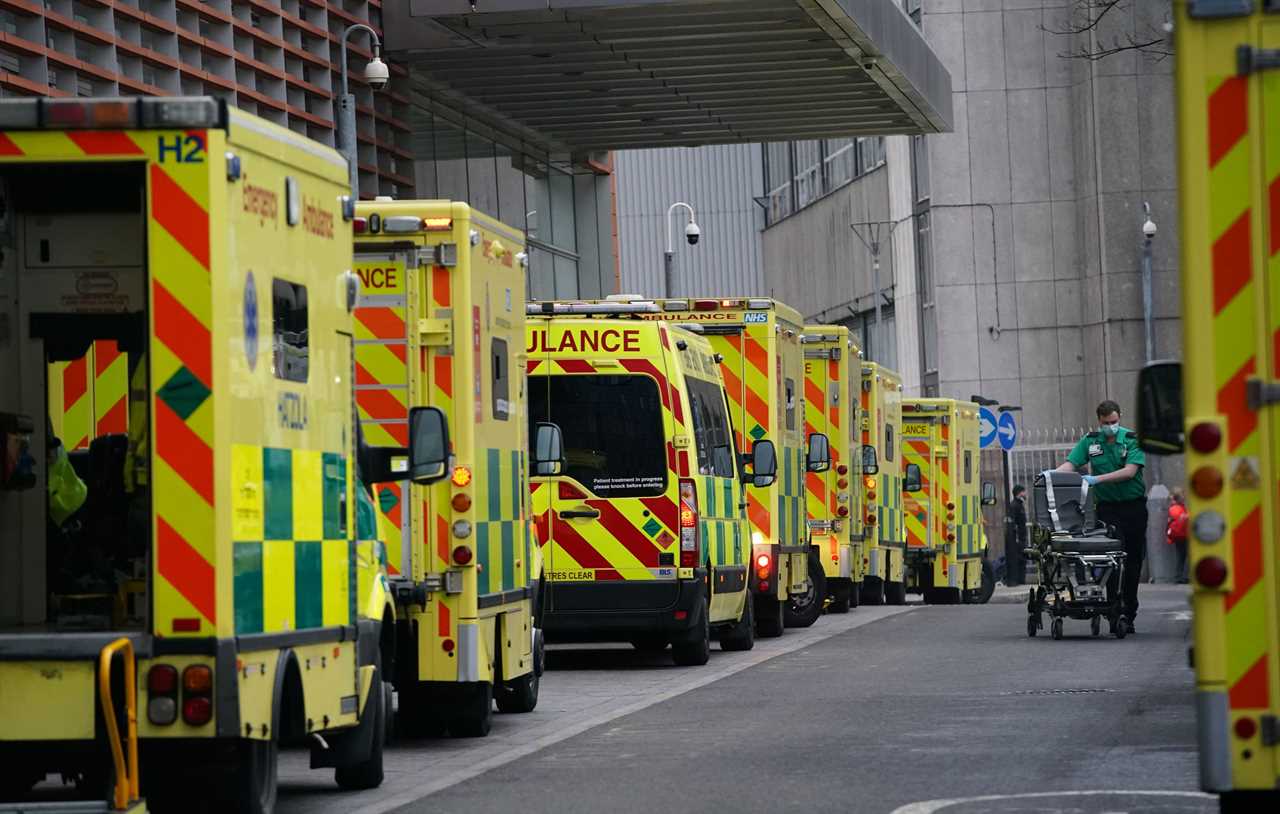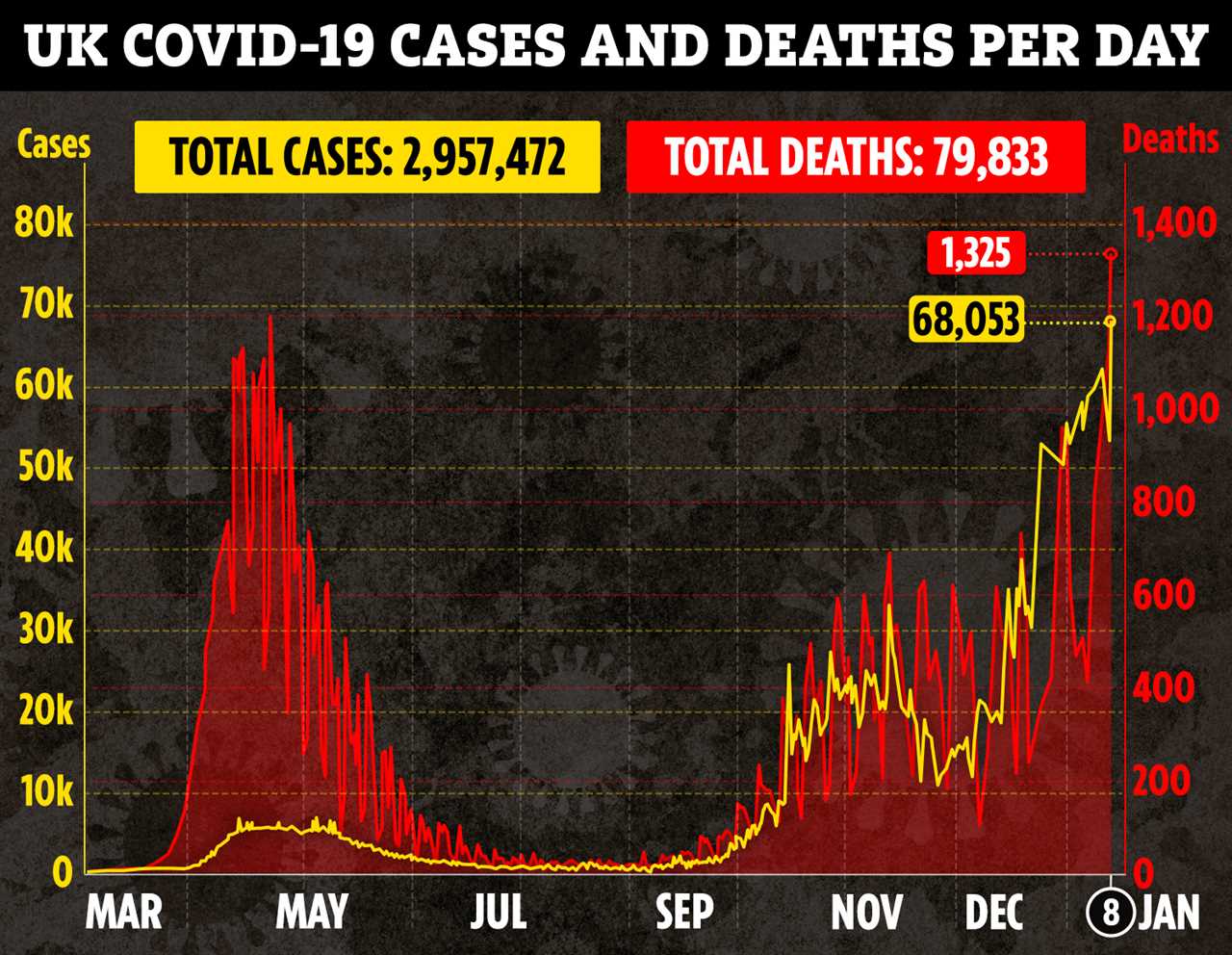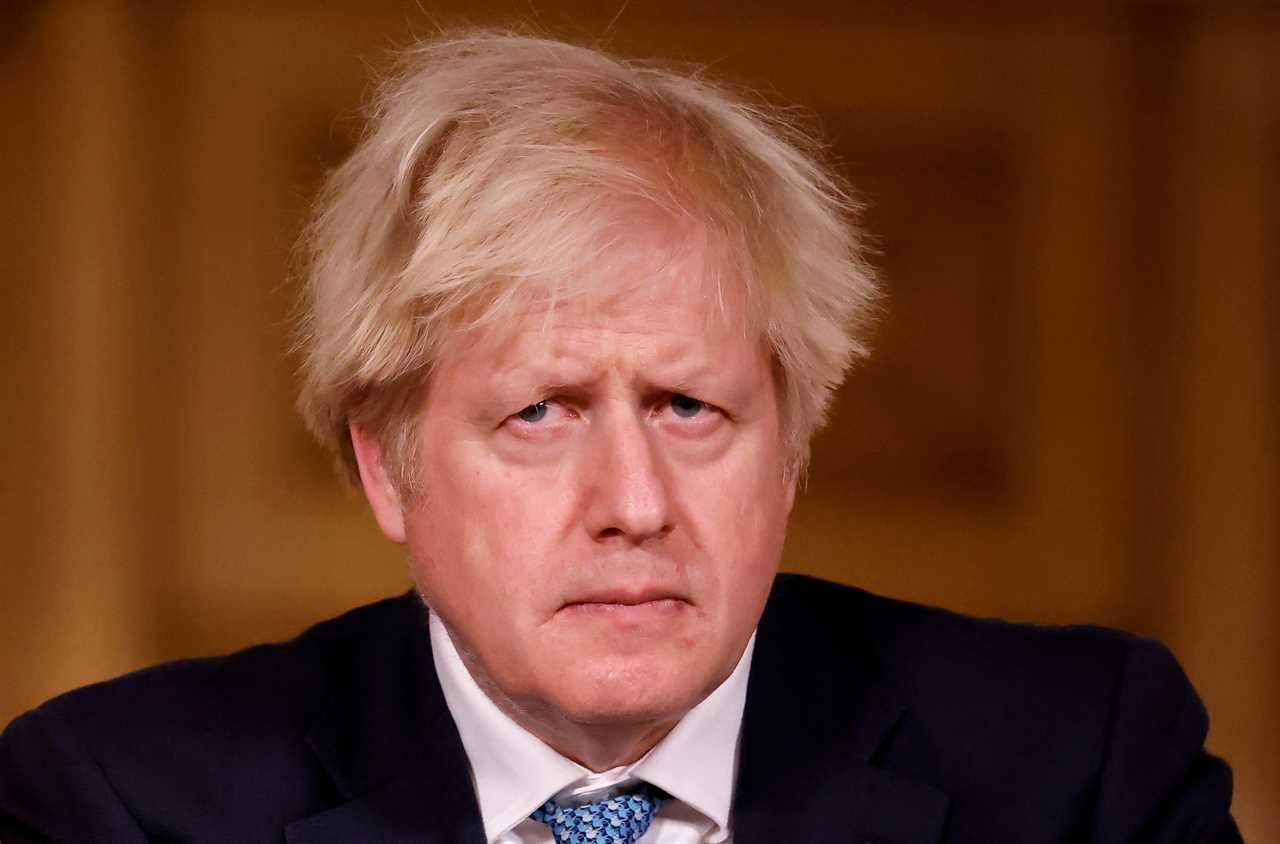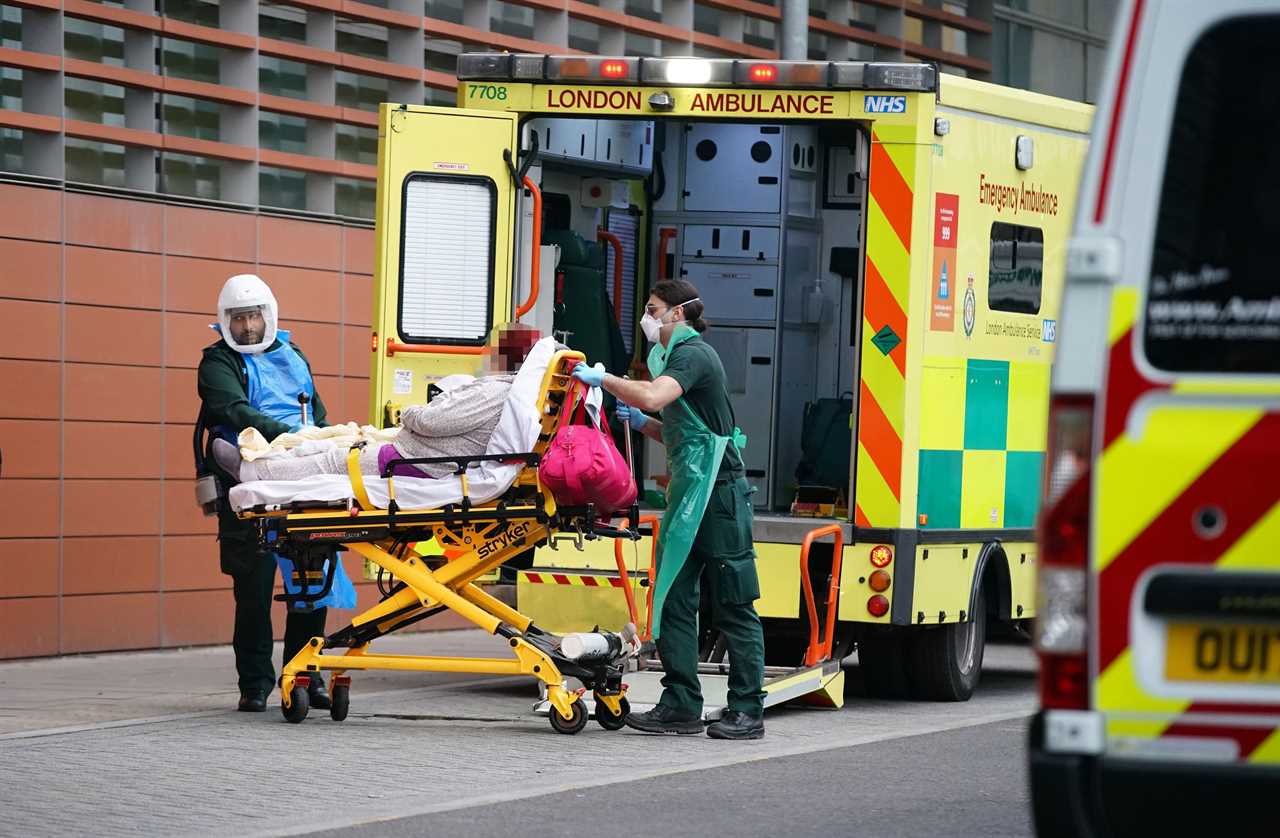BRITAIN suffered its darkest day in the war against Covid-19 yesterday.
The highest number of deaths and record infections were recorded — and a state of emergency was declared in London hospitals.


PM Boris Johnson last night had to urge the public to comply with the third lockdown as the daily fatality count doubled in a week to 1,325.
New daily confirmed cases rocketed to 68,000.
One Government adviser estimated 150,000 a day are falling victim to the virus.
The R-rate of infection in the worst-affected parts of the country stands at 1.4 — far above the target of under 1.
Yesterday was also the 11th straight day infection numbers were above 50,000 and cases have risen by almost 30 per cent week on week.
London Mayor Sadiq Khan declared a major incident in hospitals amid soaring admissions. He claimed the spread of coronavirus was now out of control in the capital.
‘SEVERE STRAIN’
Amid fears the public was not listening to the Stay at Home message, Mr Johnson urged them to comply to save lives.
He said: “The vaccine has given us renewed hope but we must not be complacent.
“The NHS is under severe strain and we must take action to protect it, both so our doctors and nurses can continue to save lives and so they can vaccinate as many people as possible as quickly as we can.
“I know the last year has taken its toll — but your compliance is now more vital than ever.
“So once again, I must urge everyone to stay at home, protect the NHS and save lives.”
Londoners are bearing the brunt of the virus surge, with one in 20 infected in some of the worst-hit areas.

In Barking and Dagenham, East London, it was estimated as many as one in 15 has Covid-19.
London hospital admissions rose by a quarter in the first week of January and there are 7,000 Covid patients in NHS beds — 35 per cent higher than the worst days of the first wave in April. In the past three days, there were 477 Covid deaths in hospitals there.
Experts believe the new mutant strain is behind 81 per cent of cases in the capital.
Mr Khan called for face masks to be worn outside of the home, including in supermarket queues and other crowded outdoor places.
He said: “The situation in London is now critical with the spread of the virus out of control.
“Our heroic doctors, nurses and NHS staff are doing an amazing job, but with cases rising so rapidly, our hospitals are at risk of being overwhelmed.
‘AT CRISIS POINT’
“The stark reality is that we will run out of beds for patients in the next couple of weeks unless the spread of the virus slows down drastically.
“We are declaring a major incident because the threat this virus poses to our city is at crisis point.”
The London Mayor can declare a major incident in extreme conditions that may lead to serious harm or risk of life and hamper the ability of the emergency services to respond.
Last night, the Government launched a huge ad campaign featuring the slogan “Act Like You’ve Got It” amid fears the public were refusing to stay indoors.
Hospital admissions are also rising in other parts of the country — although the death rate is much lower than during the first wave as treatments have vastly improved.
NHS East Suffolk and North Essex NHS Foundation Trust chief Nick Hulme said Ipswich and Colchester hospitals are full.

He added: “This is a very, very serious situation for the NHS, the worst I’ve seen in my career by a long stretch.”
South East Coast Ambulance Service is taking over half an hour to reach category two calls, which include strokes and heart attacks.
And one in ten of these callers is being made to wait over an hour, with potentially fatal consequences.
Patients calling NHS 111 in London could face a near 30-hour wait before being admitted to a hospital bed, the capital’s ambulance service has warned.
It is taking an average of 20 minutes to answer a call, two hours to pass it to 999, 12 hours for the ambulance and a similar wait in A&E before getting a bed.
Dr Adrian Harris, medical director at Royal Devon and Exeter Foundation Trust and Northern Devon Healthcare Trust, said the region faced an “absolute crisis”.
He told the Health Service Journal: “We pray that the lockdown has come in time for Devon.
“My personal view — and of my colleagues around the country — is that there’s a tidal wave of Covid-19 coming to the West Country.
“We are preparing to be hit as hard as the East of England. If we are hit as hard, we will be hanging on by our fingernails and we are planning accordingly.”
West Midlands Mayor Andy Street described the next seven days for the region as “critical” as the new variant takes hold there.
Scientific sources say they believe the more contagious variant means the current lockdown will be less effective at reducing R.
It is believed the latest measures may only lead to a levelling out of infections rather than the dramatic drop seen in the first lockdown.
Dr Alexander Edwards, of the University of Reading, said: “It will take some time for us to know how spread is affected by the new lockdown.”
But Dr Konstantin Blyuss, of the University of Sussex, said: “Hopefully, the new measures introduced earlier this week will be sufficient to stem this growth and prevent the numbers of hospitalisations from growing too fast to overwhelm the hospital capacity.”






